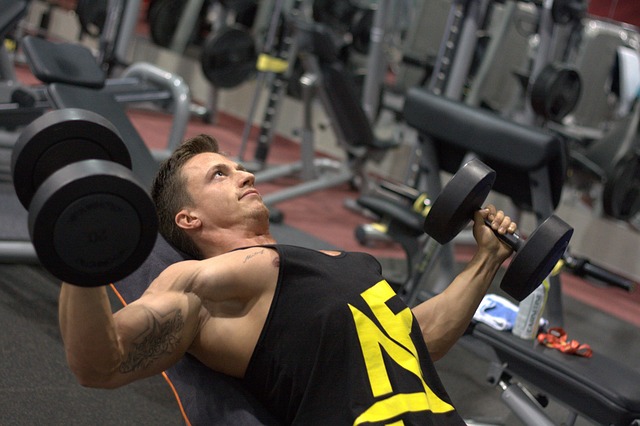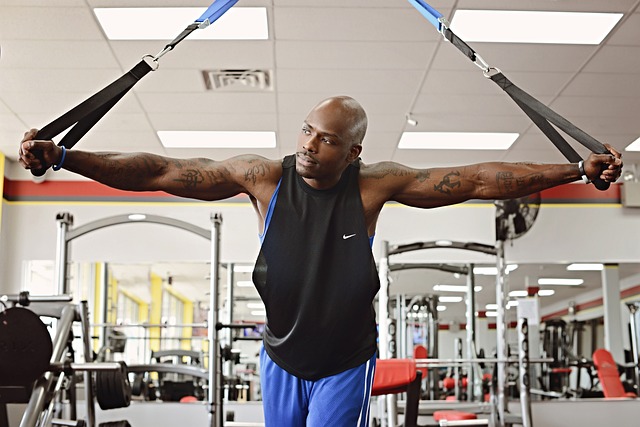Have you ever wondered why feel strong on some days but weaker on other days when you’re at the gym? It’s a common question for fitness enthusiasts, and it can be a tricky one to answer. Do genetics play a role or is something else going on in our bodies that determines how we perform each day? You may be surprised to learn that there are actually many elements that come together that make us stronger or weaker during our exercise routines.
If you are feeling weak, It may take place as a result of rigid scheduling, poor diet, dehydration, insufficient sleep, an underlying medical condition, or engaging in inappropriate exercise.
Fear not, in this article you will learn about reason and also recommend working out structure to help your journey
Being Too Strict With Your Training Schedule

First, maintaining a rigid training schedule could potentially contribute to feelings of weakness during your gym sessions. It’s essential to strike a balance by incorporating flexibility into your routine. Grant yourself the liberty of occasional rest days, particularly when initiating your fitness journey.
Moreover, An excessively stringent regimen might exert undue strain on your body, obstructing optimal recovery and paving the way for persistent sensations of fatigue. This rigidity can even escalate into the overtraining syndrome.
As a result, to circumvent challenges in adhering to your training plan, engaging a personal trainer or fitness coach can prove invaluable. They possess the expertise to craft a customized regimen aligned with your unique objectives and requirements. Also, their guidance extends to methods for sustaining commitment, ultimately fostering a harmonious equilibrium between your fitness aspirations and well-being.
Not Eating Enough Protein And Carbohydrates
Poor protein and carbohydrate intake could possibly cause you to become weak during your workouts. Insufficient consumption of protein can lead to muscle breakdown. It is essential for the growth and maintenance of muscles.
likewise, carbs are crucial in providing your muscles with energy. There may be insufficient supplies, which could make you feel weaker and more exhausted. Maintaining your energy and performance at the gym can be considerably aided by ensuring a balanced diet of these vital nutrients.
Your Recovery Plan Is Flawed
Your recuperation method may be the root of the problem if you find yourself experiencing weakness while working out. A common error is not allowing enough time for rest and recovery in between workouts.
This ongoing oversight may cause you to feel weak and worn out all the time. Allowing enough time for rest and recovery is an essential aspect of promoting muscle growth and repair. This means allowing at least 48 hours to pass between strength training sessions.
You’re Slacking Off
Facing persistent weakness during gym sessions might tempt you to take shortcuts or skip workouts. However, real progress comes from staying committed. Show up for every session, even on low-motivation days. Push yourself, even when feeling tired. This approach ensures gradual improvements in strength and overall fitness over time.
Your Intensity Is Too High
Finding the correct balance of intensity and volume is critical for effective strength training. on the other hand excessive pushing,, can lead to a recurring feeling of tiredness during your gym exercises.
The problem is increased intensity, which can cause undue stress on your body and impede normal recuperation. As a result, you’ll have a constant sense of weakness and exhaustion, that may result in overtraining syndrome.
Should maintaining the optimal intensity pose a challenge, seeking guidance from a personal trainer or fitness coach can prove transformative. Their expertise encompasses crafting a personalized roadmap that aligns precisely with your goals and individual needs.
Furthermore, their guidance extends to practical strategies for sustaining commitment, ensuring that the pursuit of the ideal intensity remains steady and supportive of your fitness journey.
You’re Not Drinking Enough Water
There could be another reason insufficient hydration can set off a chain of adverse effects, notably including diminished strength in your gym endeavors. Also, Dehydration arises when your body lacks adequate fluids, disrupting its optimal functioning and potentially triggering various concerns such as fatigue and muscle cramps.
Further, drink at least 8 glasses of water daily, with adjustments for instances of profuse sweating. Furthermore, ensuring a consistent fluid intake before, during, and after workouts stands as a proactive measure to counteract weakness and bolster overall performance.
You Have An Underlying Medical Condition
If your usual strength and energy levels appear diminished, seeking guidance from a doctor is crucial to explore potential medical factors. Some common medical conditions linked to gym-related weakness include anemia, diabetes, heart disease, thyroid disorders, and cancer.
Should you suspect an underlying medical issue, promptly consulting a doctor is essential. They can administer a series of tests to uncover any latent concerns and provide necessary treatment options if warranted. By addressing these potential health factors, you can pave the way for a more accurate diagnosis and effective management of your gym-related weakness.
You’re Not Getting Enough Sleep
Adequate sleep plays a pivotal role in recovery and rejuvenation, so a consistent sensation of weakness at the gym might emerge if your sleep duration falls short. Sleep deprivation impedes proper recuperation, potentially culminating in sensations of fatigue and muscular discomfort.
Enhancing sleep quality can prove transformative if you find yourself grappling with insufficient rest. To achieve this, consider implementing a structured sleep routine and adhering to it diligently.
Additionally, cultivating a tranquil sleep environment and refraining from exercising or using electronic devices in bed can significantly contribute to better sleep. Lastly, moderating caffeine and alcohol intake before bedtime can further support improved sleep quality, promoting enhanced recovery and diminishing gym-related weakness.
Wrong exercise and poor diet
In the end, Maintaining proper exercise execution counts for strength training success. This includes maintaining good form, technique, and weight selection. Deviating from these fundamental rules may give rise to reoccurring lethargy in the gym.
In addition, this lack of strength might also be exacerbated by an unbalanced diet. Improper intake of essential nutrients such as protein, carbohydrates, and healthy fats can impair gym performance, resulting in weariness and muscular soreness.
In lieu off to Increasing your strength and vitality requires a well-balanced, nutrient-dense diet. Give priority to protein, carbohydrates, and healthy fats, while avoiding processed foods and sugary snacks. You can unlock your full potential and overcome gym-related weaknesses by prioritizing precise exercises and a nutritious diet.
Workout Structure

Warm-up
- Initiate with 5 minutes of light cardio (jogging, cycling, skipping).
- Follow with dynamic stretches targeting major joints ( neck rotations, shoulder circles, arm swings, trunk twists, hip circles, leg swings).
- Engage activation exercises for the core and glutes ( planks, bridges, bird dogs).
Main Workout
- Perform Squats: 3 sets of 8–12 reps.
- Bench Press: 3 sets of 8–12 reps.
- Engage Deadlift: 3 sets of 8–12 reps.
- Perform Bent-over Row: 3 sets of 8–12 reps.
- Execute Overhead Press: 3 sets of 8–12 reps.
- Pull-ups: 3 sets of as many reps as possible.
- Dumbbell Curls: 2 sets of 12–15 reps.
- Perform Triceps Extensions: 2 sets of 12–15 reps.
- Engage Ab Crunches: 2 sets of 15–20 reps.
Cool-down
- Conclude with 5 minutes of light cardio (walking, cycling, stretching).
- Incorporate static stretches targeting major muscle groups (chest, back, shoulders, arms, legs).
Progression Strategy:
To sustain progressive overload and consistent gains:
- Begin with a weight that ensures proper form and moderate effort for all sets and reps.
- Weekly, increment weight by 2.5% or 5 pounds (whichever is smaller), or raise reps by one or two.
- If form and effort are maintained, retain the same weight or reps the following week.
- Should increased weight or reps compromise form or effort, reduce by 10% or two (whichever is greater), then proceed.
Adaptation and Variation:
For change and optimal progress:
- Rotate exercises or variations every four to six weeks if plateaus arise or adaptation is sought.
FAQ
Why am I becoming weaker day the day?
Many people describe weakness when their true condition is weariness. A severe disease, cancer, a persistent infection (such as HIV infection, hepatitis, or mononucleosis), heart failure, anemia, chronic fatigue syndrome, fibromyalgia, and mood disorders (such as depression, and MS) are all common causes of exhaustion.
How can I gain strength?
lifting weights.
Using resistance bands to work.
digging and shoveling are examples of hard gardening tasks.
climbing stairs.
Walking up a hill.
cycling.
dance.
Push-ups, sit-ups, and squats are all exercises.
How can I improve my stamina?
Get your feet moving. Exercise is a natural energy enhancer since it sends oxygen-rich blood to your heart, muscles, and brain whenever you do it. Fitting an exercise into your day on a regular basis, even if it’s only for 10 minutes at a time, will help keep your energy levels up.
What meals boost strength?
30 muscle-building meals to help you achieve your goals
Foods that help develop muscle Eggs. 6.28 g of protein per boiled or poached egg… Chicken. A 120 g medium chicken breast without skin has 35.5 g of protein… Turkey…. Greek yogurt… Cottage cheese… Salmon. Milk… Tuna…
How long do gym muscles last?
It usually takes two to three weeks to notice a significant decline in muscle strength.
Conclusion
Overall, a complicated interaction of elements influences swings in your strength levels at the gym. While genetics has a part, it is not the only factor. The nutritional status, hydration level, psychological state, and even sleep habits of your body all contribute to your performance on any given day. As try to follow the structure mentioned above for a healthy fit journey
Besides, Remember that everyone goes through ups and downs in their fitness quest. Rather than becoming discouraged by apparent weaknesses, see them as chances to learn and adapt. You may navigate the oscillations and continue your path to increased strength and overall well-being by listening to your body, modifying your approach, and embracing a holistic approach to health.











